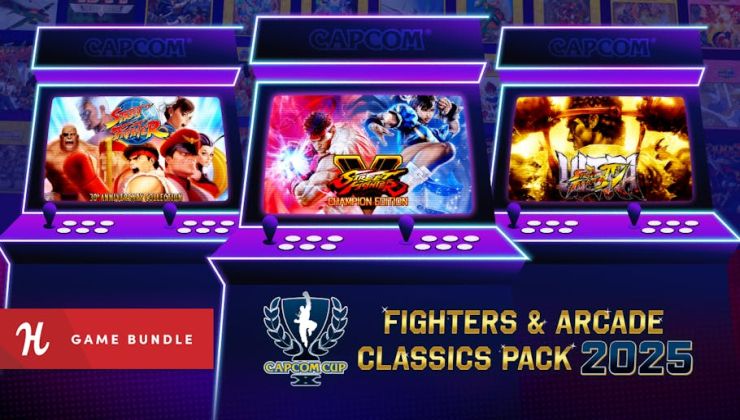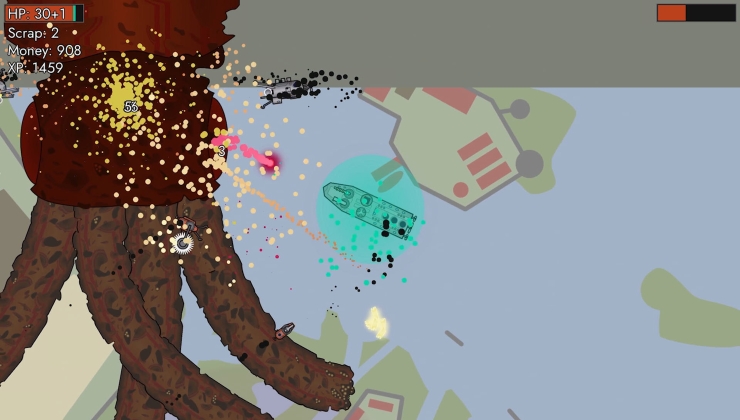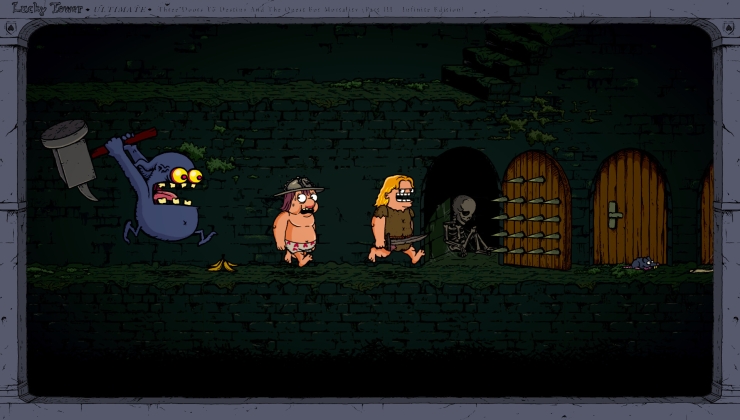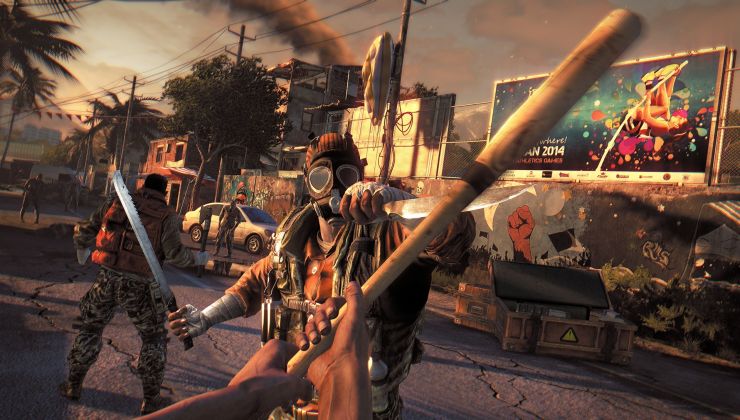Another fresh interview for you today, this time with Ken VanDine who is responsible for leading the way for Ubuntu on the desktop at Canonical. This will form part of a mini-series — the first already up with Aaron Honeycutt from System76.
GOL: Can you first introduce yourself and tell us what you do?
"I’m Ken VanDine, leading the Ubuntu Desktop team at Canonical. I’ve been here for over 13 years now, and working on the Linux desktop for well over 20 years."
GOL: How did you get started with Linux and what attracted you to it?
"Curiosity… From the time I was a young child, I just had to know how things worked. I would take my toys apart to figure out how they worked before ever playing with them. As I got older, that translated into computer hardware, and soon after software. I discovered Slackware Linux in 1993 and never looked back. It was simply amazing to have access to the source code, seeing how it worked, and I quickly immersed myself into open source software as a means to quench my thirst for how software worked."
GOL: What’s it like to work for Canonical as the Ubuntu Engineering Manager? What’s your work setup like?
"Having the opportunity to work on the Ubuntu Desktop all these years has been quite the privilege, and really the highlight of my career. During this time I’ve been able to work on many exciting projects and contribute in different ways. Now I get to be more involved in setting direction and leading an amazing team of some of the best developers around, it really doesn’t get any better than this! "
GOL: What projects are you directly involved with / working on right now for Ubuntu?
"I lead the overall development of the desktop, which includes the distro, enterprise desktop, WSL, developer experience, and gaming experience. With the gaming experience team being the newest, I’m the primary driver for that until we staff that team."
GOL: Does Canonical regularly speak to other businesses and developers, to try and get them to support Linux and Ubuntu?
"Certainly, we have relationships with many interesting companies, which is awesome. And now that we’re starting to get involved in the gaming scene on Linux, we’ve found ourselves creating some more interesting partnerships."
GOL: Canonical recently announced another push into gaming. It seemed like Canonical and Ubuntu let things slide on that front — so why now?
"I would contest that we haven’t really let it slide. For example, we’ve had long standing relationships with partners like NVidia to ensure users are able to easily use the best driver for their hardware. But yes, we are upping our game, and getting involved in much deeper ways. So why now? Momentum… The landscape for gaming on Linux is improving, at a steadily increasing pace. This momentum has sparked increased enthusiasm. It’s the right time to increase our investment and help be a catalyst to continue to fuel that momentum. Our engineers have the unique background to make a significant contribution to that growth, which we’ll all benefit from."
GOL: Going by various stats (like Steam), Ubuntu has been regularly falling as the main choice for Linux Gaming. With the likes of Arch and Manjaro pulling in a lot. Why do you think that is? Any more interesting plans to pull people back?
"I think this is primarily due to web searches done by users looking to solve various problems getting their games to work. There is a wealth of information that leads to distros like Arch. Our top priority will be to ensure users can get their games working without the need to consult those sites. The next goal will be to improve the resources available to help users on Ubuntu when needed."
GOL: So right now, why should someone go for Ubuntu over Pop, Manjaro, Arch, Fedora and others?
"Those are all fine distro choices, and people should choose what they are most comfortable with. I’d say people should choose Ubuntu if their priority is a Linux desktop that just works. We work hard to provide the best user experience possible, not only with the everyday desktop experience but also ease of access to the best drivers, bug and security fixes and out of the box access to the best selection of high quality applications. And let’s not forget our certification program that ensures that many desktops and laptops are supported."
GOL: What are you particularly excited about for the future of Ubuntu?
"Dare I say the year of the Linux desktop? Nah… Linux has reached a point where that can no longer be the goal post, we must look well beyond that. I’m really excited about all the ways Ubuntu is meeting the daily challenges of so many use cases, ranging from robotics, IoT, cloud, to desktop deployments in large enterprises and home users playing video games. Ubuntu is everywhere, and I’m really excited to be part of this journey."
GOL: For all the critics of Snap packages, anything you wish to say to them?
"Ubuntu users aren’t the critics of snaps, and I’d argue that users are less concerned with how they get their applications. Of course we have strong opinions on how to deliver high quality applications, in a secure and reliable way and it’s our mission to do just that. We do hear what people say and we take the mission of providing the best possible experience very seriously, so we are always looking for legitimate ways to improve the platform."
GOL: Considering we have Flatpak, AppImage, deb, rpm and so on. What do you think about how fractured packaging is on Linux? Does Snap not add to the problems for developers?
"There is fragmentation, which isn’t surprising. I will say out of the packaging formats you mentioned, Snap is the only one that has really seen any success from ISVs. There’s a reason why you see official snap support from major ISVs, but not the others. Snap was one of the first packaging formats to address issues like sandboxing. Other packaging formats following suit shows snap was on the right track. The benefits of snap and the single source of truth store are must haves for any major vendor."
GOL: One of the potential problems with Snap is that the server side is solely controlled by Canonical and is basically proprietary. Will this be opened up? Do you see it as an issue that needs sorting?
"Anyone can create an alternate store that supports snaps. The API is completely open as is snapd. Having a centralized store is actually one of the strengths of the ecosystem. ISVs want that single trusted source for apps. I think the tremendous success we’ve had with ISVs adopting snap is in no small part due to this concept. And I ask, is it really a problem? Snap is completely open, anyone can see what’s being executed on your system. The internals of the store that handles metadata just isn’t interesting."
GOL: Are you buying a Steam Deck? What are your thoughts on what it means for Linux Gaming overall?
"I haven’t yet, I wish I had reserved one earlier. It’s a great device, and Linux was the obvious OS choice for such a device. Valve has done a fantastic job of pushing compatibility technologies to make Linux a viable platform. All their work has really done wonders to bring more games to Linux and I look forward to seeing where that takes us."
GOL: What’s your own personal computing setup like?
"My primary system is a Thinkpad T14, with a couple of 24” displays attached via a USB-C dock. But of course I have quite a bit of additional hardware necessary for development and testing."
GOL: What are your top 5 favourite games to play on Linux?
"Oh, that’s a tough one. I’ve always been partial to racing games and really enjoy any of the Need for Speed games. I’ve also been really into Raft lately as well as playing LoL, Valheim and RDR2. I’m more of a creator than a gamer, however I do have a passion for enabling users to get the most out of their Linux desktop experience."
Big thank you to Ken for joining me on this.
I'll have more interviews to come, stay tuned! Get in touch if you want to be interviewed.
Also back then, remember, Canonical were pushing the idea of a converged mobile & desktop experience. The "Edge" phone was coming, powered by Unity. Incredible vision, when you realise this was twelve years ago. I remember being blown away by the possibility of using my phone as a dashboard screen on my desktop, and resizing, mobile-aware apps - something we take a little more for granted these days, but absolutely mind-blowing at the time.
For the record, I did put Ubuntu Touch on my JingPad A1, as JingOS seems to be dead. But it for sure runs worse than JingOS did, but at least still has a future. Granted I think the speed issue is more about not having fully open hardware, so it's missing some acceleration bits. Otherwise it's a fairly decent set up. I still haven't tested the stylus, or played around with it much. Closest we still have to convergence now would be something like the Steam Deck.
I actually still have my Ubuntu 4.10 cds laying around my house. You know from back when you could just go to their site and say 'send me CDs!' and they'd ship them out because they believed in getting as many people to try it out as possible. I miss those days, they seemed a lot better then.






 How to set, change and reset your SteamOS / Steam Deck desktop sudo password
How to set, change and reset your SteamOS / Steam Deck desktop sudo password How to set up Decky Loader on Steam Deck / SteamOS for easy plugins
How to set up Decky Loader on Steam Deck / SteamOS for easy plugins
See more from me